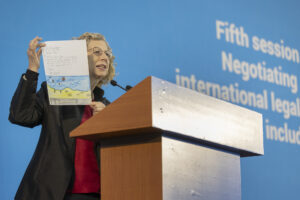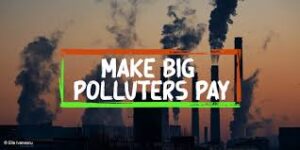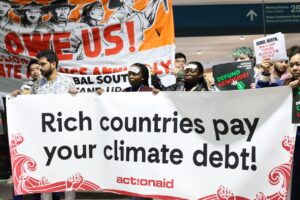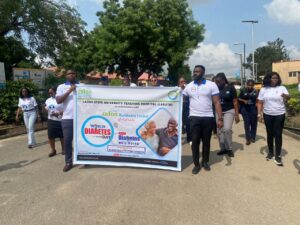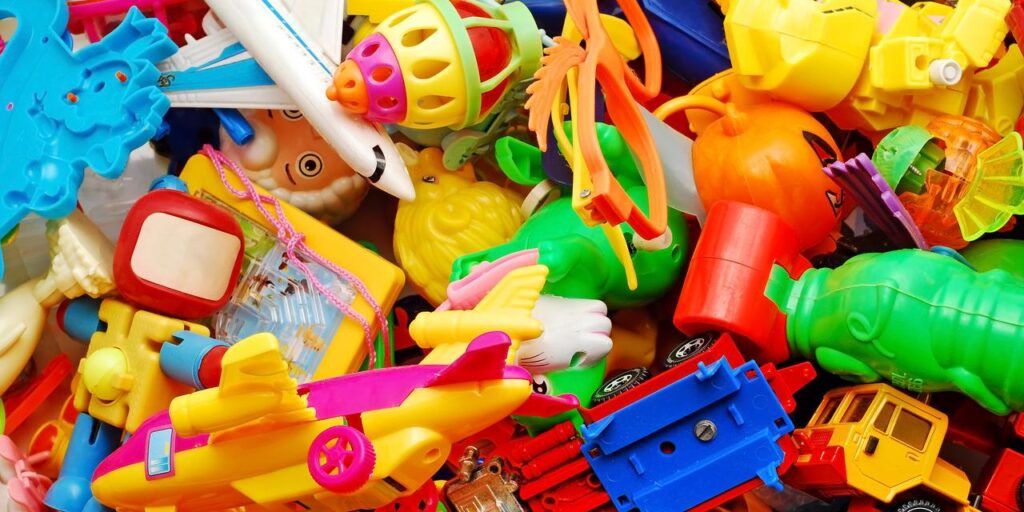
colorful toys background closeup detail
Thony Dizon, a campaigner for Safe Toys for Kids of BAN Toxics, stated that “soft plastic toys like inflatable hopping horses, squeaky toy animals, shrilling chickens, rubber duckies, and dolls containing harmful chemicals called short-chain chlorinated paraffins (SCCPs) remain unregulated in our local markets, posing a significant risk to our children’s health.”
BAN Toxics is extremely concerned about the ongoing spread of plastic toys and consumer goods contaminated with chlorinated paraffin, as evidenced by recent findings.
Toys from ten countries, including the Philippines, have dangerously high concentrations of these chemicals, according to a study conducted by the International Pollutants Elimination Network (IPEN).
The fact that the toys were examined in a recognized laboratory in Prague, Czechia, emphasizes how worldwide this problem is.
The country’s toys contained medium-chain chlorinated paraffins (MCCPs), which are known for their toxicity, persistence, and bioaccumulative characteristics, as well as short-chain chlorinated paraffins (SCCPs).
These dangerous chemicals are nevertheless present in many consumer products, putting children and adults who come into everyday contact with them in peril, even in spite of the Stockholm Convention’s ban on SCCPs and the ongoing assessment of MCCPs.
These extremely harmful compounds are still present in consumer goods like children’s toys, PVC curtains, kitchen hand blenders, electrical equipment, clothes, and artworks, even after SCCPs were outlawed globally and MCCPs are still being evaluated under the Stockholm Convention.
This is concerning and shocking at the same time because youngsters are regularly exposed to high levels of chlorinated paraffins when they play with such tainted plastics.
These harmful substances can enter the mouths of youngsters who chew or mouth-wash them, as well as be inhaled when they come into touch with the skin.
Under the legally binding Stockholm Convention on Persistent Organic Pollutants (POPs), to which the Philippines has been a party since 2004, SCCPs were outlawed in 2017 with no exceptions for toys.
In order to ensure environmentally sound management of POP stocks and wastes, governments that ratified the Convention are expected to take action toward the elimination, limitation, and reduction of the specified POP compounds’ production, use, and trade.
This includes SCCPs. Certain toys even go above the suggested health-protective thresholds that are now being worked out inside the Convention. Given their widespread use in industrial processes, chlorinated paraffins require prompt attention from regulators and politicians.
Because SCCPs and other types of chlorinated paraffin are registered on the Philippine Inventory of Chemicals and Chemical Substances (PICCS), which lists their current use, manufacture, and imports into the nation, BAN Toxics strongly advises taking immediate action.
“In light of the Stockholm Convention, we implore the government to confront these problems, phase out or minimize SCCPs and MCCPs, and give risk assessments on the whole class of chlorinated paraffins top priority. To protect the environment and public health, Dizon said, these harmful compounds must be regulated, limited, phased out gradually, or outlawed.
Given the ubiquitous manufacturing of chlorinated paraffin worldwide, BAN Toxics claims that the issue is exacerbated by inadequate and improper labelling.
In order to facilitate informed decision-making along the entire product value chain, it highlights the significance of transparency and traceability in plastic product materials.
It is critical that the chemical composition of ingredients used in plastic goods be traced, disclosed information be shared across the value chain, and transparency prevail.
If these issues are appropriately resolved, regulators, producers, importers, merchants, consumers, and recyclers will be able to make well-informed judgments, according to BAN Toxics.
Given the global nature of these challenges, it is appropriate that our suggestions be included in the ongoing negotiations for a global plastics convention in Nairobi, where the United Nations Environment Assembly’s intergovernmental negotiating committee (INC-3) is meeting through November 16.
By actively engaging in the treaty negotiations in person, civil society organizations like BAN Toxics actively pushed for these reforms, the group continued.
The group announced that it will communicate with the Food and Drug Administration and the Department of Environment and Natural Resources, releasing IPEN’s study and asking them to give plastic toys that might contain hazardous chlorinated paraffins priority for immediate attention.

